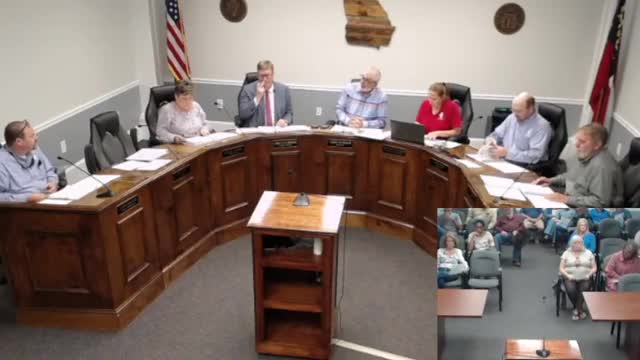Jones County staff proposes elevation standard for new houses to reduce drainage problems; board postpones vote
Get AI-powered insights, summaries, and transcripts
Subscribe
Summary
County staff proposed a text amendment to require higher foundation elevations on lots one acre or smaller to reduce recurring drainage problems; the commission postponed action to a future meeting to allow more review.
County staff on Oct. 21 presented proposed language to amend the county code to require higher first-floor elevations on small lots in order to reduce long-term drainage problems when structures are built below road level.
The proposal, introduced by staff member Tim and discussed by Mister Risner, would apply to lots one acre or smaller unless exempted by a licensed engineer's sealed plan, lots greater than one acre, or exceptional topography for which staff could grant an administrative exemption. Staff said the standard would not fix existing drainage issues but could mitigate future problems.
Staff described the rule as aimed at new development in higher-density subdivisions, where small lots can leave inadequate room for drainage and lead to costly, sometimes intractable problems when a house is constructed at a lower grade than the road. The draft language would require higher foundations where drainage is predominantly toward the road and would include inspection points before concrete is poured.
Commissioner Kishan questioned how the rule would apply in situations such as a five-foot driveway drop from the road to a slab; staff said the exemptions and a required inspection before foundation concrete is poured would address many such situations. Commissioners and staff discussed adding a checklist item to the county's rough-in inspection to confirm elevation compliance before a foundation is poured.
Commissioner Kitchens asked that the board postpone action to allow time for review and suggested the item be placed on an agenda with more time for questions; the board then voted to postpone the amendment to the next meeting. The motion to postpone passed after a second.
Staff said they would return the item to a future agenda and that the proposed language could be refined with additional input from development professionals and the public.
